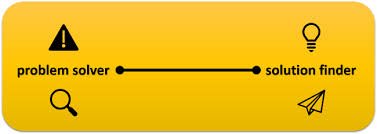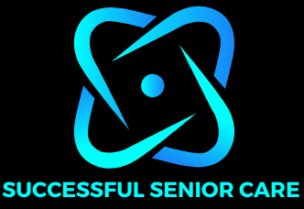
Why does this matter?
Too often, I work with individuals who are stuck in a mindset that centers solely on the problems in front of them. While it’s important to acknowledge challenges, fixating on them can become a barrier to seeing opportunities or crafting solutions. Consider the image of a hammer and a nail. Is the nail a problem waiting to be fixed, or is it part of the solution? If the nail is never hit, it serves no purpose. But when it’s struck with intention, it becomes a tool for building something. The same is true with problems, they can either hold us back or drive us toward innovation and progress.
Let’s explore a common real-life scenario and the different ways it can be approached.
Most of us have seen or experienced a relationship that seems strong and healthy on the surface. Yet, one partner begins to express concern:
“I really love them. I know they’re a devoted parent and incredibly hardworking. But I’m frustrated. They don’t take care of their health—they eat poorly, avoid exercise, and don’t seem open to making changes. I’m starting to feel disconnected, and honestly, I’m worried I’ll lose interest and won’t want to be with them.”
Sound familiar? This kind of frustration stems from focusing solely on what the other person isn’t doing. When we zero in on shortcomings without offering solutions or support, it often leads to emotional distancing. This mindset where attention is fixated on the problem without seeking resolution is essentially complaining. And when left unchecked, it can quietly erode even the strongest partnerships.
Let’s take a solution-focused approach: “I truly want my partner to be more engaged with me in everyday life like taking walks together after dinner, exploring healthier meals, trying out a fun new activity like pickleball, getting more involved with the kids and their sports, and even cutting back on alcohol. These shared efforts would mean a lot to me. They’d help me feel more connected, supported, and drawn to them on every level. I know our relationship would feel more meaningful and energized if we made these changes together.”
Here is a 3 step framework for effective solution focused approaches
1. Reframe the Language
The way we talk about a challenge influences how we approach it. Instead of saying, “This won’t work,” ask, “What needs to happen for this to work?” Reframing shifts the focus from limitation to possibility. It engages the creative part of the brain and invites new ideas. In relationships or teams, this approach fosters collaboration by turning criticism into curiosity. For example, rather than dwelling on what a partner or colleague isn’t doing, highlight what would feel supportive or effective. Language is powerful as it can build walls or open doors.
2. Focus on What’s Working
Rather than fixating on what’s broken, identify what’s already going well. Then ask, “How can I do more of that?” This strengths-based approach builds momentum and confidence. It also keeps you from becoming paralyzed by negativity. For instance, if a team’s communication is weak, but their project results are strong, use the same teamwork strategies from project success to improve daily interactions. Focusing on the positive doesn’t ignore problems, it creates leverage from what’s already effective.
3. Take the Smallest Next Step
Problems can feel overwhelming when viewed all at once. Solution-focused thinking breaks things down into manageable actions. Ask, “What’s the smallest next step I can take right now?” This approach builds progress, even when motivation is low or the path forward is unclear. If you’re struggling with health, don’t aim to overhaul your lifestyle overnight. Start with a 10-minute walk or swapping soda for water. Small wins build trust in your ability to change and make long-term transformation more achievable.
In Conclusion
Step one is assessing oneself, honestly ask yourself “am I problem or solution focused?” Step two is to identify when you are more likely to be problem focused vs solution focused. Step three is trying a new approach AND allow yourself to feel the new approach. In your discomfort, you will find the answers and be able to consistently move toward using solutions and to look for opportunities. This is where coaching can be highly effective! Call me at 440-212-4987 for a quick discussion. Often times a brief conversation can uncover a meaningful application that you didn’t know was there all along!
